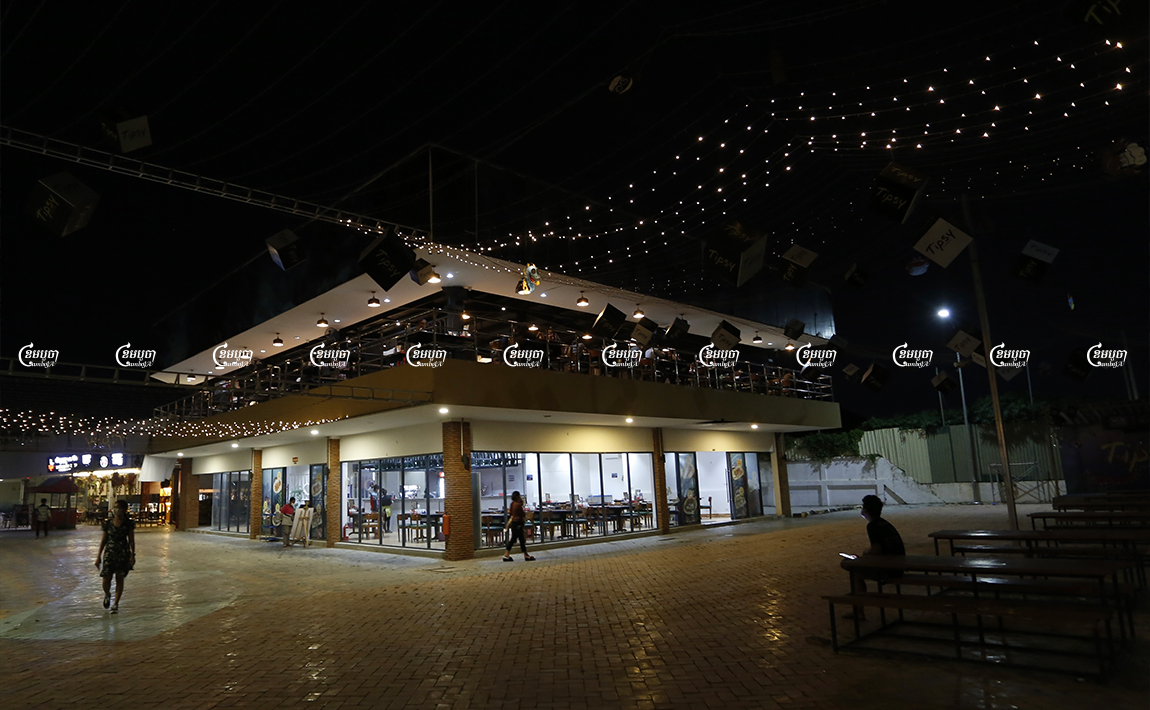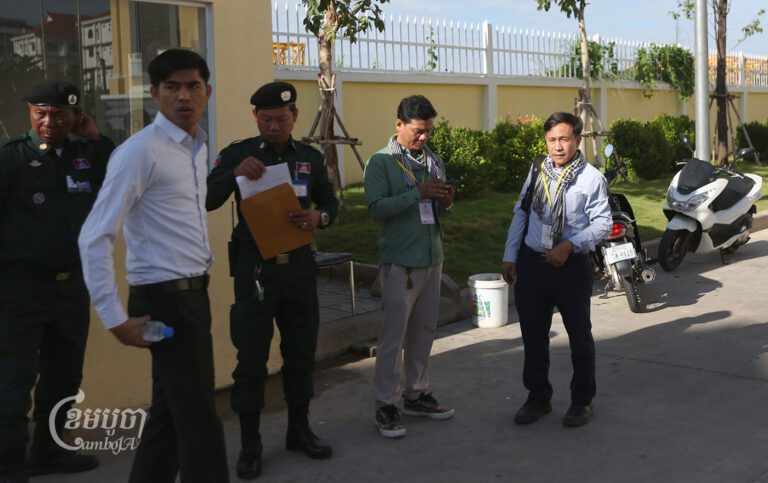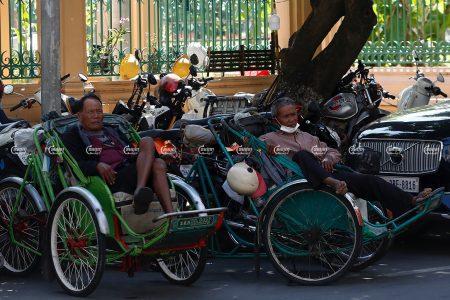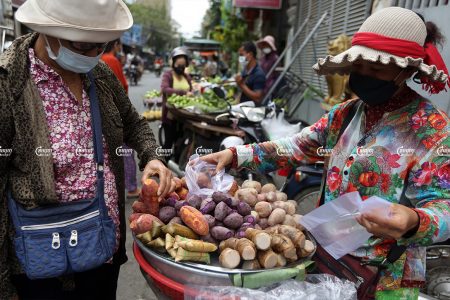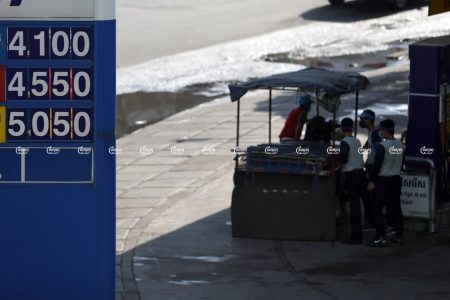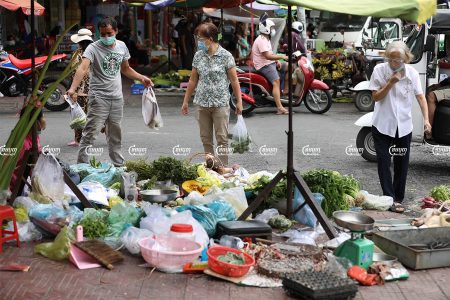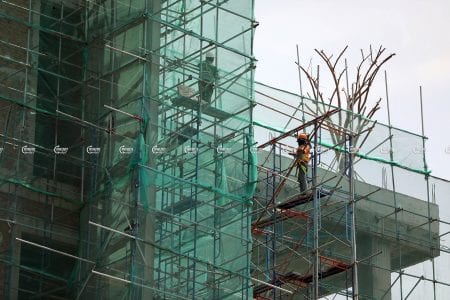In the evening, casual restaurant tables closed for months are now once again set for customers as city streets fill with vendors and the flow of busy people.
It’s a reassuring sign that business is returning to a semblance of normal after the Cambodian economy was knocked off-kilter by the onset of the COVID-19 pandemic, first by disruption of global travel and supply chains and then by a domestic outbreak that prompted a wave of lockdowns. As difficult as the viral era has been for Cambodia, an ongoing easing of restrictions, including the announced return on Tuesday of the e-visa program for tourism, is giving many reasons to hope for better times.
On Tuesday, Prime Minister Hun Sen said in an audio message that declining numbers in the country of both COVID-19 deaths and new infections will soon lead to a total reopening of all economic sectors.
“At the time, the agriculture and industrial sectors are going well, the service sector will also reopen [after] we did a huge test during the Pchum Ben festival,” he said, referring to a reopening of tourism sites during the multi-day holiday. “This is the good way that we have to live with the new normal of COVID.”
The prime minister also said that all schools will be reopened as well.
Some businesses that promote large gatherings and have been deemed as posing a high risk for COVID-19 infection, such as beer gardens, nightclubs and other entertainment spots, have been closed for months. But even though Phnom Penh City Hall last week ordered these higher-risk businesses to remain closed for 14 more days, until October 28, many have already reopened.
Those decisions come on a shifting tide toward social openness after the government ordered a stop to mass rapid testing for COVID-19 and issued new measures to reduce by at least half the number of days of quarantine for incoming travelers who are vaccinated. The government now seems to be turning to a strategy of promoting further vaccination, in part by requiring business venues to ask customers to show their vaccination cards before being allowed entry.
Hun Sen in his Tuesday audio message also called on people who have yet to be vaccinated to move quickly to receive the jab, as well as for health employees and other authorities to prepare vaccinations for people in remote areas.
As of Tuesday, more than 13.6 million of Cambodia’s total population of 16 million people have been vaccinated with at least one dose of serum, including children aged 6 years and older. Hun Sen said more than one million people, half of whom are in Phnom Penh, have received a booster dose of COVID vaccine.
Meanwhile, the Ministry of Health has announced the expansion of vaccinations for new demographics, such as pregnant women, breast-feeding mothers and certain groups of elderly people.
Or Vandine, spokeswoman of the Ministry of Health, posted on Twitter on October 17 that business and society are encouraged to reopen but are still required to follow health guidelines to ensure safety.
“Individuals, business owners and local authorities are encouraged to start proper preparation with balancing risk and continuing necessary prevention measures to ensure safe reopening towards [a] new normal,” she wrote.
That prospect of a “new normal” comes as welcome news to workers in the informal sector, many of whom have struggled to meet their expenses with the loss of their livelihoods due to pandemic conditions.
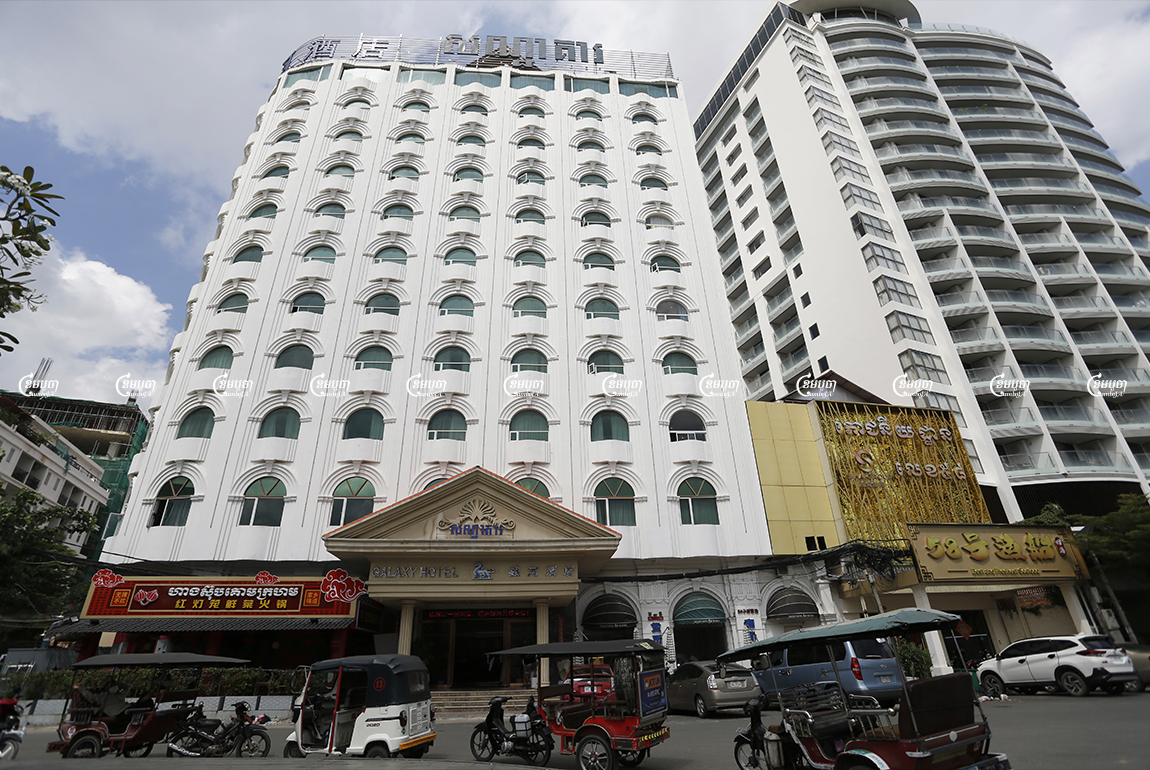
Hann Sitha, a 56-year-old cyclo driver, said he and other drivers in Phnom Penh depend on foreign tourists to earn their keep, as local people tend to use other forms of transportation. With the complete lack of tourists for more than a year, many cyclo peddlers have seen their earnings vanish.
“I firmly believe that when the economy is fully reopened, foreign tourists will return to visit Cambodia [and] that we can earn more money to support our family,” Sitha said.
For now, he works with the charity project Local for Local, driving his cyclo to collect donations to share with those in need due to the economic fallout of COVID-19.
Chheng Kimlong, vice-president and business researcher at the Asian Vision Institute, said it’ll take time for economic activity to recover but that allowing foreign tourists and investors back to restore business ties is a good step in general. Kimlong said the informal sector accounts for 80 percent of the national economy and that a reopening should help restore its workers to a better standard of living.
For now, the impacts of the complete loss of tourism have been felt across Cambodia and, although media reports indicate prospective tourists will now be able to apply for e-visas, it remains to be seen how quickly they’ll return.
In Siem Reap province, unemployed tour guide Yon Sothea said the industry downturn has affected a wide range of local businesses.
He explained that some guides in Siem Reap have found different jobs in order to earn money, but he said all are waiting to return to the tourism sector.
“I am excited about the news of the country’s reopening, and hopefully everything will turn to normal as before the pandemic,” Sothea said.
Vorn Pao, president of Independent Democracy of Informal Economy Association (IDEA) said the reopening of businesses will benefit those who are struggling with the severe financial difficulties caused by the COVID-19 pandemic.
“I personally think reopening business possibly could help improve people’s living conditions … and [ability] to pay debts back to the bank,” he said.
Easing measure to buoy tourism
According to a report issued last year by the Ministry of Tourism, more than 3,000 tourism-related businesses have closed since the start of the pandemic.
On October 16, the Health Ministry issued a notice of reopening the country, stating that downward-trending COVID-19 data had prompted a decision to reduce mandatory hotel quarantines for general foreign visitors from 14 to seven days. Foreign investors and businessmen will be required to quarantine for just three days, with all reductions made on the condition that the travelers are fully vaccinated against COVID-19.
Clais Chenda, vice-president of the Cambodia Hotel Association (CHA) and owner of a hotel in Kep province and a boutique in Kratie province, said that after two years of losses, reopening the country would restore the tourism sector and related business.
“We are the most vaccinated country in ASEAN, so we must promote internationally to attract foreign tourists,” she said. “Reducing the quarantine is also an attractive point for foreign tourists to visit Cambodia and If the situation gets better, it should be completely removed because it is still a barrier for foreign tourists.”
Chenda said her hotels had reduced staff by 50 percent to keep business afloat.
“We will invite them back to work and we will also prepare a training course in tourism skills … before the sector fully reoperated,” she said. “We will also repair and redecorate the venue to welcome visitors, especially foreign tourists.”
On Tuesday, the Health Ministry reported a decline in new COVID-19 cases to just 175 with 11 deaths, bringing the total count to 117,035 cases and 2,681 deaths since the pandemic began in early 2020. The ministry has also recorded 111,420 recoveries from the viral disease.


